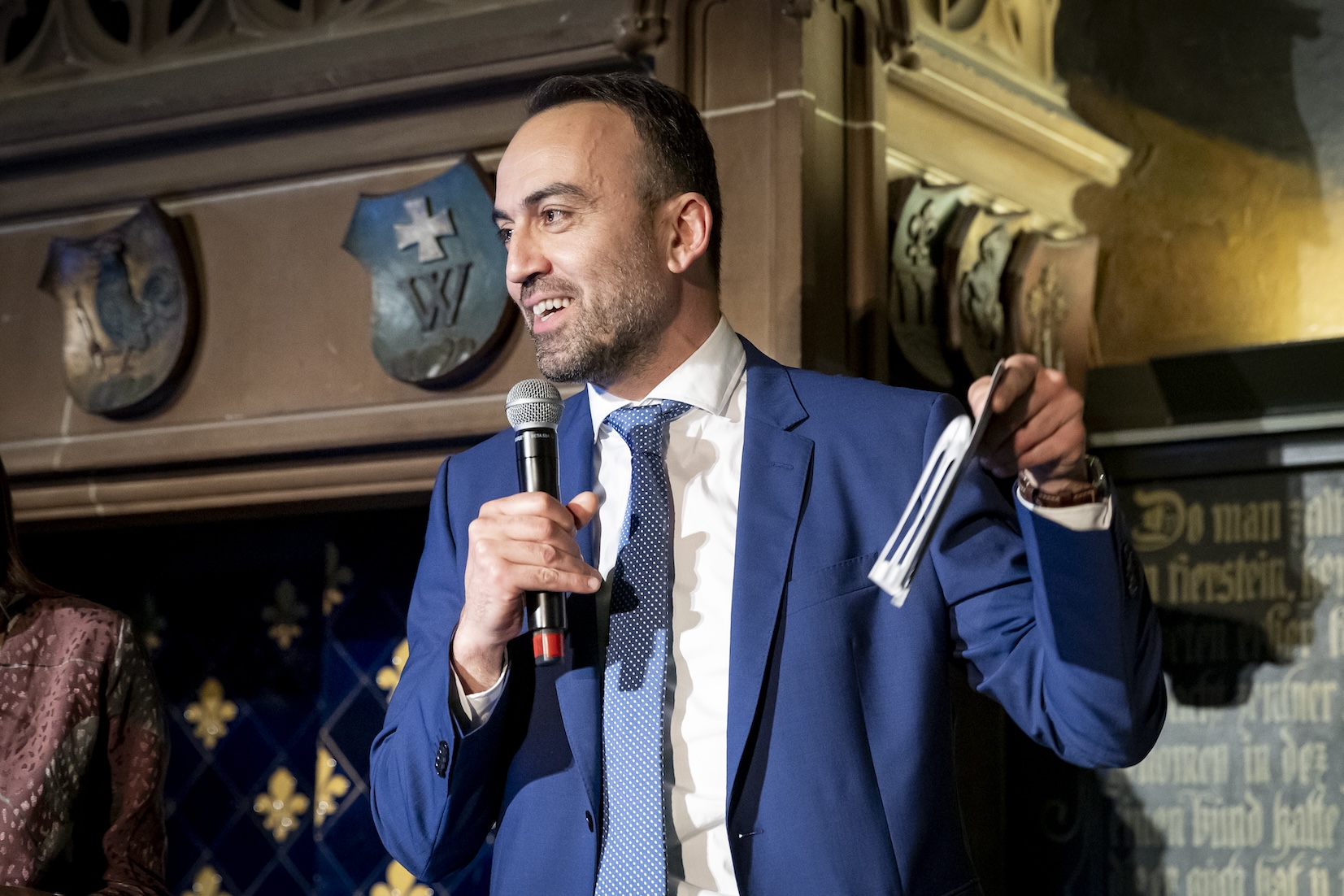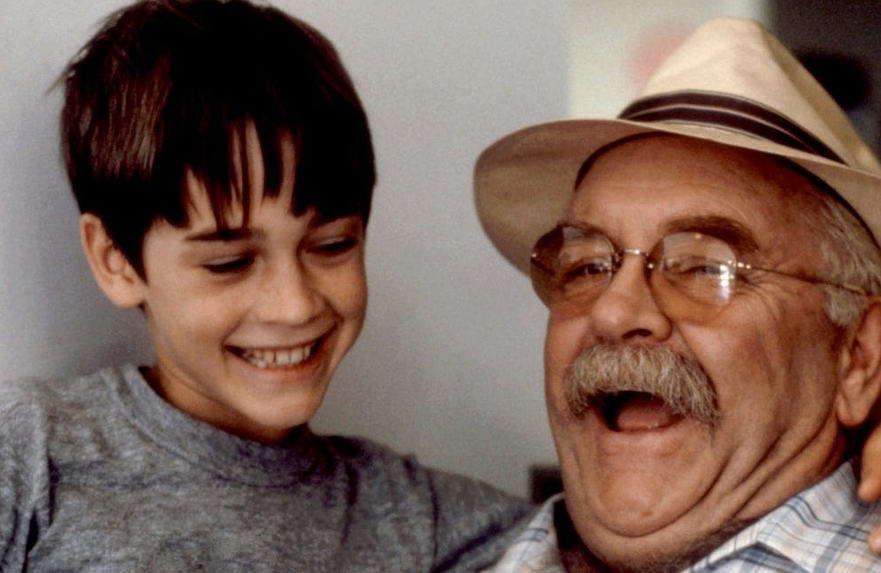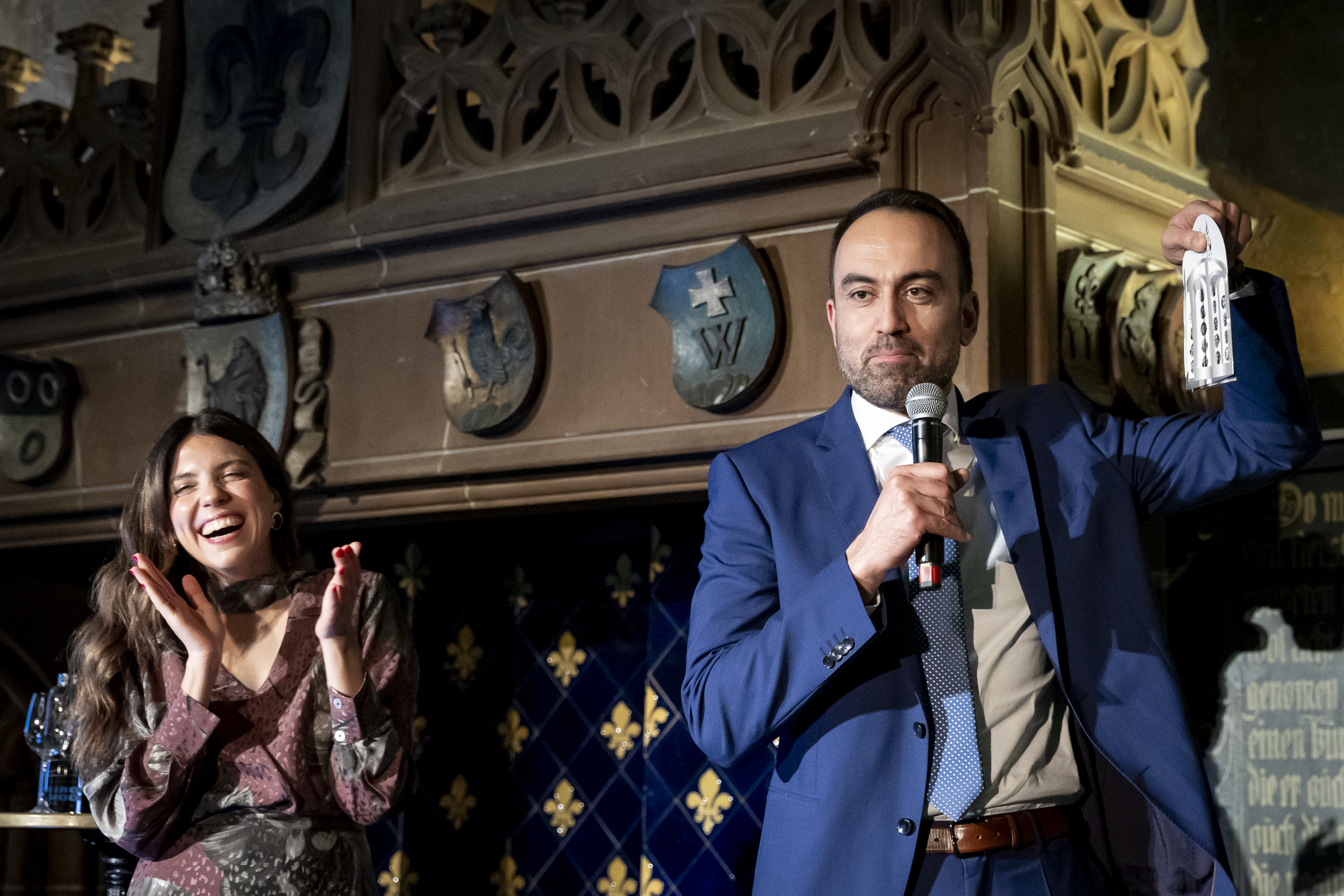
Z jeho krátkeho prejavu, ktorý prijal ocenenie ESO Spirit of Excellence Award v Bazileji, je zrejmé, že Dr. Apostolos Safouris je veľmi zábavný, veľmi srdečný a veľmi vážny muž.
„Nemôžete sa ozvať v Grécku,“ varuje pred oznámením, že chce hovoriť o príbehoch. Vedie obľúbeným citátom: „Odlišuje nás od živočíšneho kráľovstva to, že veríme v príbehy.“ Pokračuje v mnohých skvelých príbehoch a jedným z nich je, že Anjelská iniciatíva buduje komunitu okolo starostlivosti o mozgovú príhodu.
Po nakreslení smiechu s útesom pri hľadaní seba samého (a kolegov, ktorí boli nominovaní) v jedálni s ananásovým karpacciom späť na slávnostnú poznámku: Predpokladá, že integrácia práce anjelov a výboru ESO pre mozgovú jednotku (ktorý predsedá) bude mať za následok, že pre pacientov s mozgovou mŕtvicou v Európe sa urobí viac.
O pár dní neskôr sa zdvojnásobí v komunite príbehov.
Úsilie lekárov vo vzdialených alebo vidieckych nemocniciach sa zriedkavo uznáva, hovorí Dr. Safouris, ale Angels uznáva nemocnice, že aj keď nie sú dobre financované alebo dobre obsadené, poskytujú vynikajúcu úroveň starostlivosti. Široké objatie komunity Anjelov znamená, že aj na ostrove, ktorý je rovnako vzdialený ako Rhodos, bola všeobecná nemocnica dvakrát ocenená cenou Anjels Award.
Podľa Dr. Safourisa sa ESO vyvinula do vplyvného orgánu, ktorý je schopný posunúť vedu dopredu, ale príbehy, ktoré majú schopnosť cestovať na veľké vzdialenosti a dostať sa do tých najužších kútov, môžu viesť vedu smerom von.
Vysvetľuje: „Veda je pre pokrok spoločnosti, ale mnohé časti EÚ nemali z pokroku vedy žiadny prínos. Je to povzbudzujúce, príbehy, ktoré šíria vedecké poznatky ľuďom a komunitám. Európa je koniec koncov zhromaždením komunít. Celá cievna mozgová príhoda je súčasťou väčšieho projektu.
„Preto sú príbehy, ktoré rozprávajú Anjeli, dôležité.“
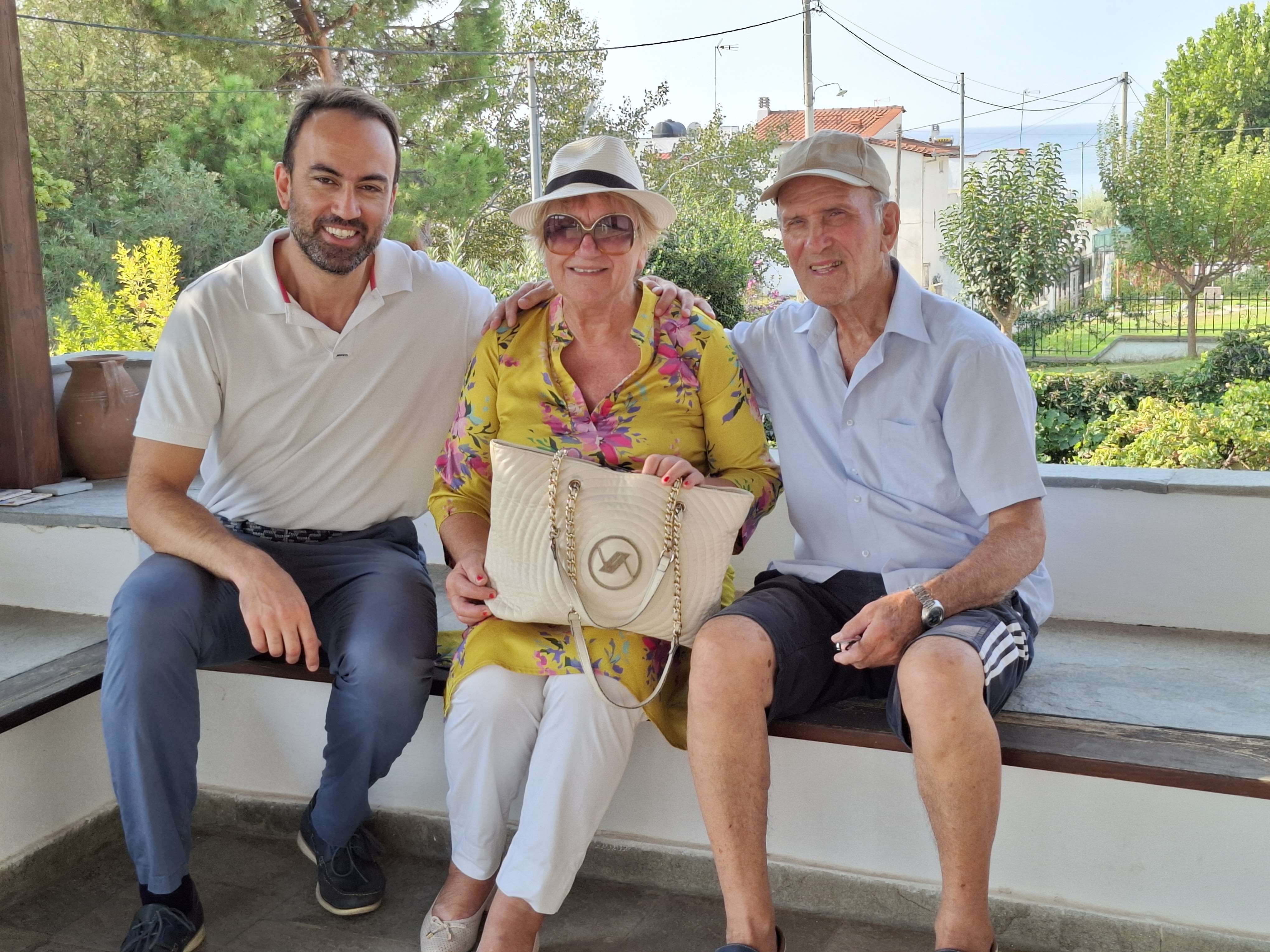
Mladí ľudia musia robiť chyby
Vlastný príbeh Dr. Safourisa sa začína vo vidieckom macedónskom meste Serres, inom malom meste z Atén, ktorého všeobecná nemocnica bola uznaná za vynikajúcu starostlivosť o mozgovú príhodu. V jednom zmysle šesť zlatých ocenení, ktoré zdobia tieto steny nemocnice, môže byť ešte dôležitejšie ako dvanásťnásobok uznania za starostlivosť o mozgovú príhodu v nemocnici Piraeus. Po strate starej mamy pre mozgovú príhodu zmierňujú obavy doktora Safourisa z ďalšieho úderu proti rodine oddanosti jeho kolegov. Hovorí: „V noci môžem spať ľahšie, pretože viem, že v prípade, že sa niečo stane, je skupina motivovaných ľudí, ktorí pracujú pre moju rodinu.“
„Mladí ľudia musia robiť chyby,“ hovorí o 18-ročnom Serresovi, ktorý sa odhlásil zo života žiakov Thessalonikiho kombináciou svojho lekárskeho štúdia na univerzite Aristotle University s výučbou v helénskej vojenskej akadémii.
Vo veku 24 rokov začal školiť v oblasti neurológie v Thessaloniki v tom čase úplne novej všeobecnej nemocnici Papageorgiou. Keďže ide o najmodernejšiu nemocnicu v Grécku, bolo to v tom čase jediné zariadenie, ktoré ponúkalo školenie o trombolýze mŕtvice vďaka nemeckému neurológovi Dr. Rudolfovi Jobstovi, ktorý sledoval svoju neurochirurgickú ženu v Grécku.
Doktor Safouris hovorí: „Príležitosť vidieť, čo to znamená zmeniť progres ochorenia.“
V roku 2010, po nevľúdnom súde, pokračoval v školení v Univerzitnej nemocnici Brugmann University Hospital v Bruseli, kde sa narodila ich najstaršia dcéra Barbara. Hovorí, že práve tu bol „infikovaný vírusom mozgovej neurológie“, Po absolvovaní školenia v nemocnici AHEPA Hospital v Thessaloniki sa Safouris vrátil do Bruselu, kde videl Barbaru, ako začína škôlku a privítala druhú dcéru Kalliniki.
Ich nápovedou k návratu do Grécka v roku 2015 bolo zriadenie apoplexie v nemocnici AthensMetropolitan Hospital v Piraeus, kde Dr. Safouris je dohliadajúci neurológ. V roku 2018 sa stala prvou nemocnicou v Európe, ktorá získala akreditáciu ESO centra cievnej mozgovej príhody v rámci programu na porovnanie, štandardizáciu a zlepšenie liečby cievnej mozgovej príhody v Európe.
„Aplikovali sme hneď, ako sa platforma začala používať,“ hovorí Dr. Safouris, pričom zdôrazňuje úlohu prof. Georgiosa Tsivgoulisa ako „vedeckého srdca projektu“.
Prof. Tsivgoulis, až donedávna viceprezident ESO a bývalý nominant na ducha dokonalosti, je profesorom neurológie a predsedom Univerzity v Aténach, kde spolu s Dr. Safourisom spolupracujú na výskume cievnej mozgovej príhody a na implementácii osvedčených postupov.
Hovorí Dr. Safouris, že novo akreditovaná metropolitná nemocnica stanovila nové štandardy starostlivosti o mozgovú príhodu v Grécku. „Veľa sa na nás pozerá, ale teraz máme aj konkurenciu z mnohých centier. V súkromných a verejných nemocniciach sú aj iné mŕtve jednotky, ktoré tiež veľmi dobre fungujú.“
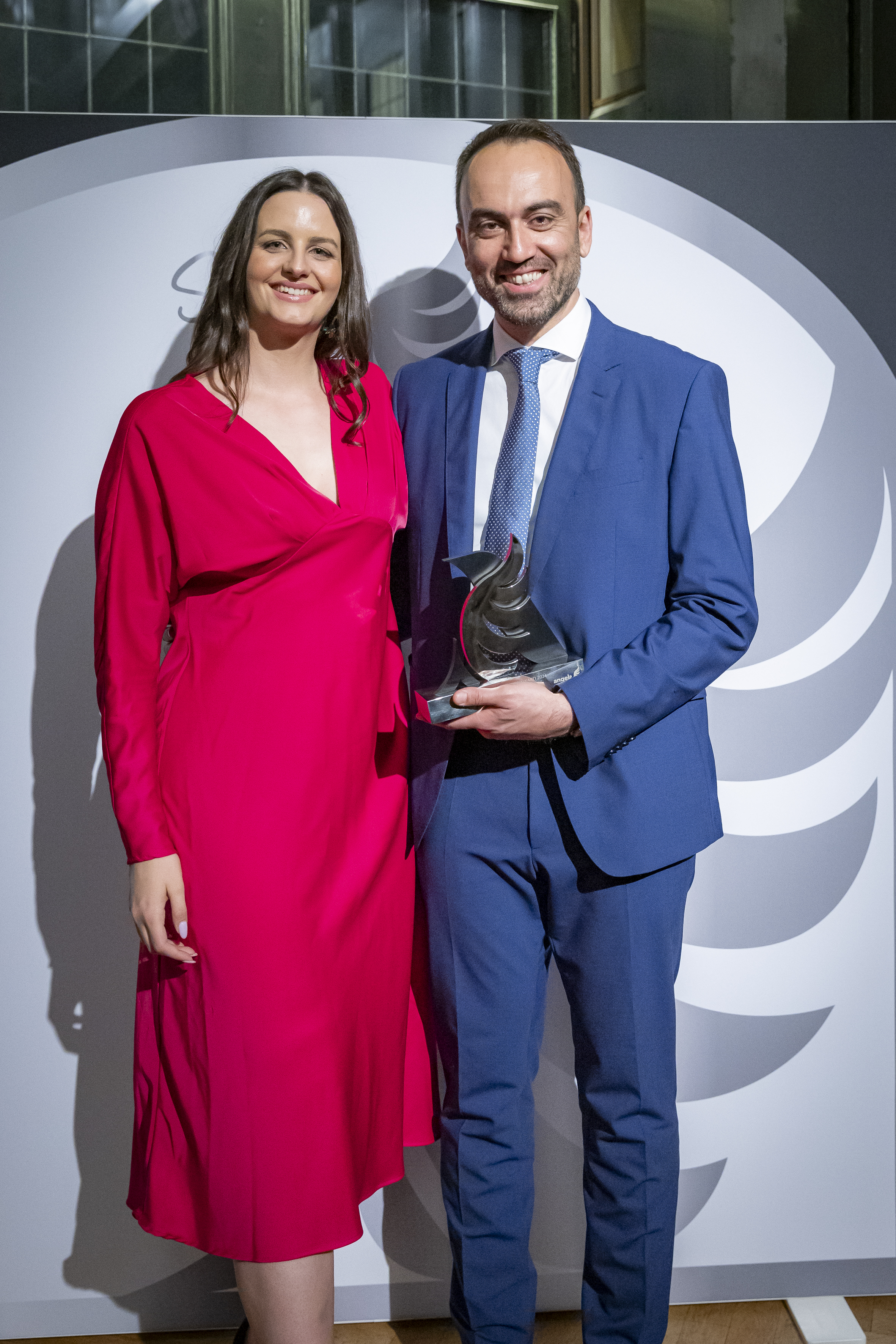
Prišiel som k tomu neskoro v živote
Bolo to bez námahy, hovorí Angels konzultantka Eleni Panoutsopoulou, ktorá nominovala Dr. Safourisa na cenu ducha dokonalosti. Slová práve prúdili, keď opísala svoju úlohu pri vytváraní komunity apoplexiológov, ktorí sa stretávajú raz za mesiac, jeho spolupráca s univerzitou v Ionnaine na vývoji mobilnej aplikácie na mapovanie centier trombolýzy a trombektómie v Grécku na zníženie oneskorení núdzovej prepravy a jeho obhajoba certifikácie ako prostriedku zmeny výsledkov pacientov.
Napísala: „Apostolos zaostáva za niekoľkými opatreniami na zlepšenie starostlivosti o mozgovú príhodu, ktoré nemajú priamy vplyv na jeho nemocnicu. Jeho nesebeckosť a podpora ma inšpirujú. Chápe kvalitu a potenciál gréckych zdravotníckych pracovníkov a snaží sa nájsť spôsoby, ako si uľahčiť život, čím dáva životu nielen svojim pacientom, ale aj celej krajine.“
Eleni ukončila úlohu s rozkvitnutím: „Pomenujte ma lepším kandidátom... Počkám!“
Dva dni po prijatí ocenenia a očarení publika sa Dr. Safouris usadil na pocte, že ide skôr o budúcnosť ako o minulú prácu, a opísal ho ako „uznanie od ľudí, ktorí na mňa stávkujú, že sa zlepším“.
„Ocenenie ľudí, ktorí vedia, že sa snažíte, je skvelým posunom vpred,“ hovorí.
Postúpiť do svojej funkcie predsedu certifikačného výboru pre mŕtvicu, pretože certifikovanejšie mŕtvice sú indikátorom optimalizovanejšej starostlivosti o mŕtvicu. Popredu s vytvorením komunity rovnako zmýšľajúcich kolegov, zmenou názorov, prekladom zavedenej vedy do implementácie.
Hovorí: „Videl som ľudí, ako bojujú s následkom stratených príležitostí, a pomalé som si uvedomil, že pomoc si nevyžaduje hlbšie vedecké poznatky. Že každý deň bez optimalizácie starostlivosti o cievnu mozgovú príhodu bol stratený deň a že bolo v poriadku investovať úsilie a čas do poskytovania najlepšej možnej akútnej starostlivosti čo najväčšiemu počtu pacientov s cievnou mozgovou príhodou.“
Keďže bol svedkom toho, ako sa cievna mozgová príhoda roztrhá na rodinnej tkanine, stal sa „lekárom pre rodiny pacientov s cievnou mozgovou príhodou“, ako aj hnacou silou pre zmenu.
Doktor Safouris hovorí, že obhajoba v ňom vyrástla. „Bol som typickým študentom. Uvažoval som len o tom, že sa zlepším a poskytnem to najlepšie zo seba svojim osobným projektom. V skutočnosti je potrebné urobiť mnoho užitočných vecí prostredníctvom projektov, ktoré prekračujú tieto úzke hranice. Prišiel som k tomu neskoro do života. Pokúsim sa to stihnúť.“
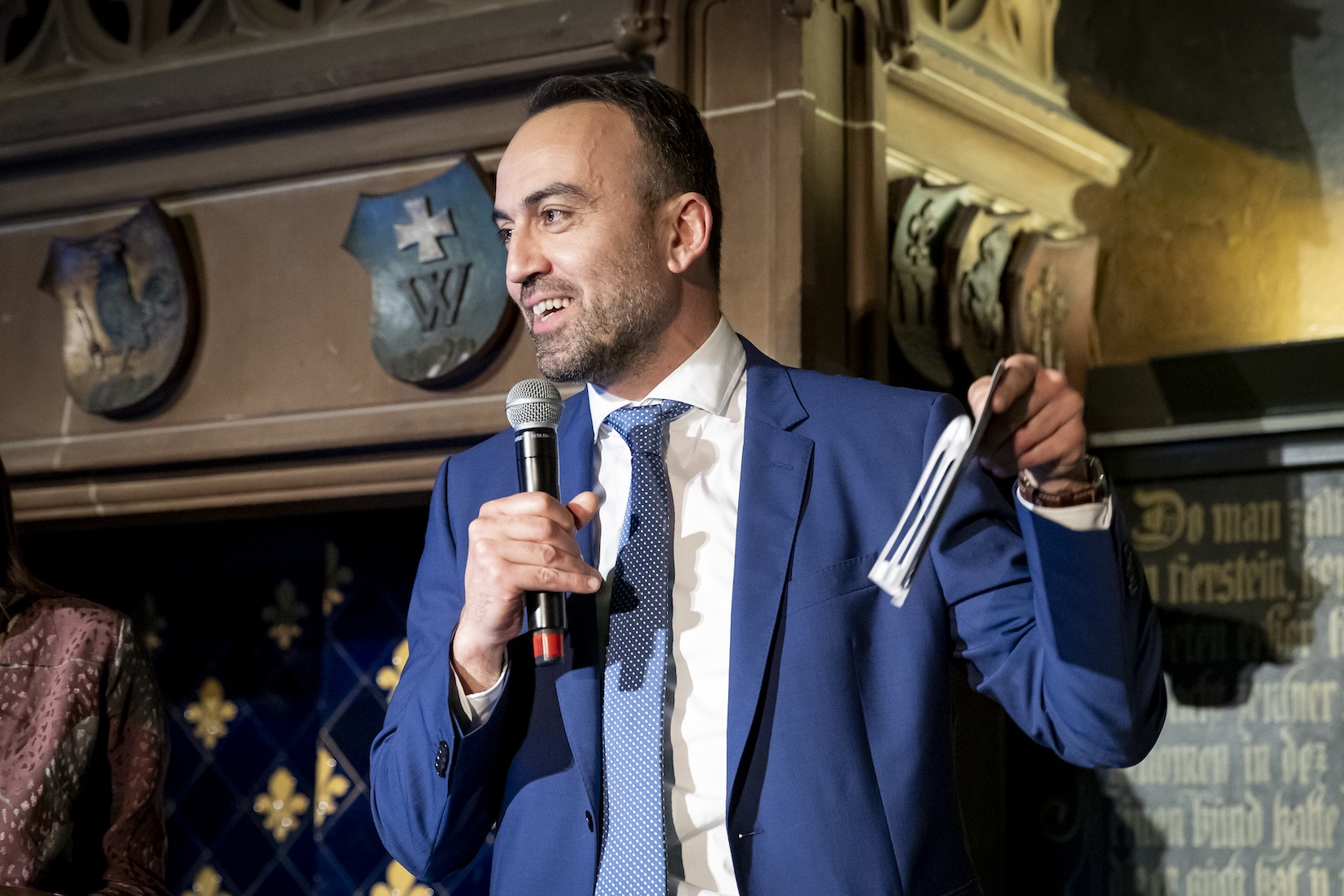
Ako byť človekom
Grécka kultúra je kultúra rozprávania príbehov, a hoci jeho fórom môže byť skôr Facebook než súdy bronzových kráľov, Dr. Apostolos Safouris jasne rád rozpráva príbehy o vykorisťovaní bohov a mužov.
Napríklad v novembri minulého roka výlet do Paríža priniesol Marcelovi Proustovi esej „Filtiálne pocity parricídu“, ktorá bola napísaná po tom, ako Parížanka zabila svoju matku pred tým, ako si vzala život. Je kratší, Dr. Safouris uisťuje svojich priateľov, ako je popis popoludňajšieho čaju, ktorý sa podáva v hre Hľadá stratený čas.
Inde odporúča nový anglický preklad Homerovho lídra „dokonca aj Gréčtine, pretože väčšina gréckych prekladov bojuje s formulárom a často neprenáša univerzálnu múdrosť klasiky“.
Jedlo s priateľmi v letný deň vyvolá citát básnika Walta Whitmana: „Vnímal som, že by mi stačilo byť s tými, ktorých mám rád.“
A jeho narodeniny na konci júna sú príležitosťou na zamyslenie sa nad Hefaestovým chrámom, ktorý sa nachádza v starobylej Agore of Athens: „Môj názor je, že táto stranica spája všetky prvky, ktoré formujú moderný stav Grécka a vo všeobecnosti moderný stav človeka: konštrukcie vyrobené z materiálov z rôznych tradícií, ktoré tvoria jednotu a odolajú času a brutalite vo vnútri a mimo stien...“
Rád číta, doktor Safouris to potvrdzuje. Na návrh kolegu si osvojil prax rozširovania prezentácií s odkazom na skvelé diela literatúry, histórie a myslenia. To umožnilo „príbehom“ obohacovať svoju prácu celkom premysleným spôsobom. Hovorí: „Veľké texty z histórie ľudstva pomáhajú umiestniť moju prácu do širšieho kontextu ľudských skúseností.“
